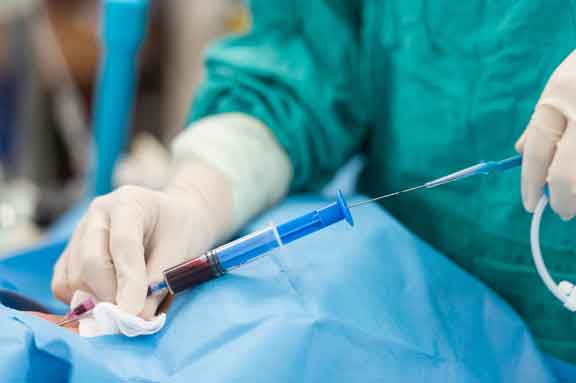Vascular surgery is a type of surgery that focuses on removing or repairing vascular tissues. There are many types of advancements in vascular surgery.
These surgeries vary but can be classified into peripheral vascular surgery, vascular neurosurgery, carotid surgery, and abdominal aortic aneurysms. When there is a situation where the doctor cannot use internal approaches, vascular surgery is performed to enable blood flow through vessels. The surgeon may need to cut the artery or vein open, clamp it shut, or bypass it with a graft of artery or vein tissue. When an artery is clamped shut, this reduces the blood flow to the surrounding tissues. To bypass the blocked artery by using another vessel, a surgeon might take a section of the blood vessels that are healthy from elsewhere in the body and use it to create an alternate pathway for blood.
What is vascular surgery?
Vascular surgery is a branch of surgery that deals with all diseases involving the blood vessels. It includes all surgical procedures to repair and maintain arteries, veins, and capillaries for restoring blood flow. The reason behind this is that these original conduits – arteries, veins, and capillaries – are present everywhere in your body.
The development of open-heart surgeries has led some to believe that vascular surgery will become obsolete soon. Nevertheless, it still offers an effective treatment option for some patients who struggle with cardiovascular disease. It could be because of the advancements made in vascular surgery over the years, including improvements in minimally invasive procedures.
Vascular disease can affect various parts of the body aside from the heart, including the brain, leg, and arm. When the vascular disease affects any of these areas, it can cause serious health problems like stroke or clogged arteries in the legs.
When should you get vascular surgery?
It is important to know when you should get vascular surgery. The vascular surgeon can help diagnose and treat any vascular problems, including arterial and venous blood vessel diseases. They may also provide preventive care. You should consult a vascular specialist if you experience the following signs and symptoms of vascular diseases.
Vascular disease is a condition wherein the veins in the body are narrowed or blocked. It can be because of arteriosclerosis, diabetes, high cholesterol, or other factors.
These include:
- Sudden darkening of the skin on the legs.
- Venous stasis dermatitis, also known as leg discoloration, can be caused by problems with the veins in your feet or lower legs. Standing for long can aggravate the circulation issue, leaving you vulnerable to foot injuries such as the accumulation of blood (venous stasis).
- History of stroke or mini-stroke
- Stroke is the leading cause of disability. Symptoms include weakness, numbness in your arm or leg, trouble seeing out of one eye, and more.
- Pain in the legs while walking
- Pain in the legs while walking is often caused by poor movement mechanics. It can be caused by tight or weak muscles in the hips, pelvis, or feet. The pain may also come from something as simple as improper footwear.
- Painful or bulging veins
- Mild cases of varicose veins are typically much more tolerable, yet some people will find them uncomfortable.
- Swelling in the extremities (arms, hands, legs, feet)
- Swelling at the extremities is a common symptom of various conditions, ranging from minor to life-threatening.
- Wounds on the extremities that don’t heal
- Your body’s natural defense mechanism is to heal wounds when they happen. But sometimes, wounds do not heal. It is a condition called chronic non-healing wounds, leading to several complications.
It is tempting to attribute these symptoms to age or arthritis. However, they can be signs of a serious vascular condition.
Who is the most likely to have a vascular disease?
The risk factors for vascular disease are the same as those for heart disease. It includes tobacco use, family history (if you have a strong family history of cardiovascular disease, it is especially important to make smarter lifestyle choices), and a sedentary lifestyle (knowing your cholesterol and blood pressure numbers will help you recognize which changes might be necessary). Other important risk factors include diabetes.
Even though they are called surgeons, there are treatment options that do not require vascular surgery always. Most times, it may not be necessary to go under the knife. Such treatment options are:
- Medication
- Compression stockings
- Lifestyle modifications.
Getting the treatment you need makes an enormous difference. With the right diagnosis and treatment, patients can live at home independently with fewer hospitalizations. With good care from a home health aide or family member, individuals can enjoy a higher quality of life. And when looking for a vascular surgeon, keep your well-being in mind and be prepared before you go for vascular surgery.


